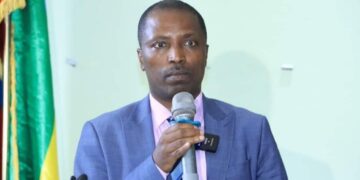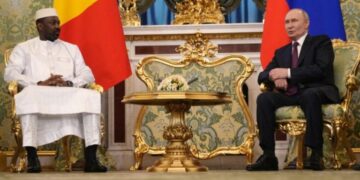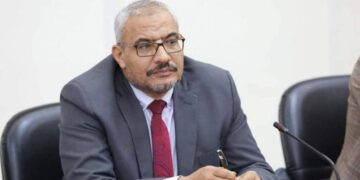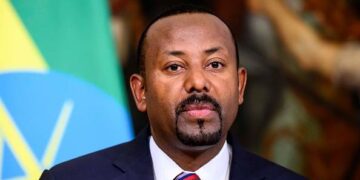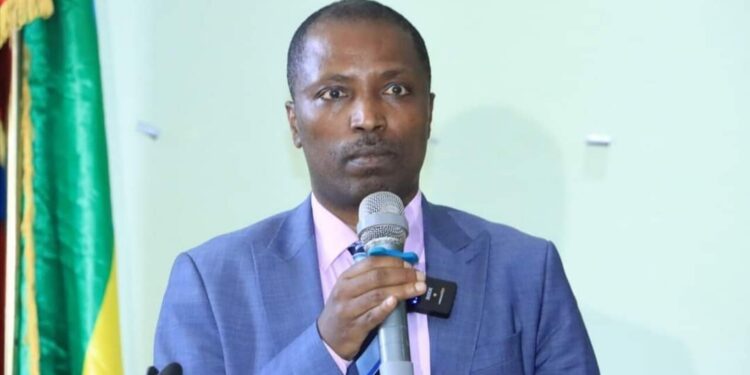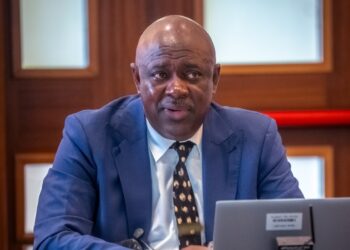Barely twenty-four hours after his sack as a member of cabinet, Ethiopia’s state Minister of Peace, Taye Dendea has been arrested by the police for allegedly “collaborating” with rebel fighters.
Prime Minister, Abiy Ahmed had sacked Dendea effective immediately in a letter issued on 11 December, 2023.
The letter posted on the verified facebook page of Dendea did not explain reason for the sack but it thanked the now ex-state minister for his contribution during his tenure since 08 October, 2021.
He had earlier condemned authorities for banning an anti-war rally in the capital Addis Ababa.
Dendea, a once staunch supporter of the Prime Minister had recently fallen out with the federal government over its handling of the economy and the ongoing unrest in the Oromia region.
Federal police released an official statement on Facebook announcing that Taye was arrested on Tuesday for “collaborating with anti-peace forces who want to destroy Ethiopia”.
The statement was accompanied by images showing weapons, rebel flags, license plates and mobile telephones, items which the police claimed were recovered from Taye’s house and were allegedly part of a “plan to destabilise the country”.
“A member of OLF-Shane who was using three different IDs was also found hiding in his residence and was arrested,” the statement added.
Classified as a “terrorist organisation” and referred to as OLF-Shane by Addis Ababa, the OLA rebel group has been fighting the government since 2018 after splitting from the Oromo Liberation Front (OLF) when it renounced armed struggle.
A fresh round of talks between the OLA and the government ended without agreement last month, with each side blaming the other for the breakdown.
Dendea, of the Oromo ethnic nationality from the country’s most populous region, shared a letter from Abiy announcing his dismissal on his Facebook page on Monday, describing the Prime Minister as “a savage playing with human blood.”
More than 50 civilians have died in attacks last month since talks ended between the OLA and the government, according to the Ethiopian Human Rights Commission.
The OLA’s strength, estimated at a few thousand men in 2018, has increased in recent years, though observers believe it is insufficiently organised or well-armed to pose a real threat to the government.
The Oromo ethnic group accounts for about a third of the 120 million inhabitants of Africa’s second most populous country.
The OLA has been accused by the government of orchestrating massacres, something the rebels deny. The authorities in turn are accused of waging an indiscriminate crackdown that has fuelled Oromo resentment.
